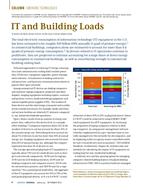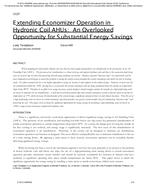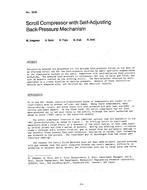Energy modeling is used to compare efficiency strategies and show code compliance with an energy code relative to a baseline. The baseline reflects conventional design or a design compliant with the local energy code. To identify cost-effective, efficiency alternatives, or demonstrate code compliance, the baseline needs to be clearly defined and understood.
This paper will explore how baseline assumptions drive decisions. The differences between the ANSI/ ASHRAE/IESNA 90.1-2004: Energy Standard for Buildings Except Low-Rise Residential Buildings Energy Cost Budget method and Appendix G baselines will be discussed, as well as real-world considerations when establishing a baseline. Examples of how assumptions for windows, lighting, ventilation, and HVAC system options affect design decisions are given.
Citation: ASHRAE Conference Papers, 2010, vol. 116, pt. 2, Albuquerque, NM
Product Details
- Published:
- 2010
- Number of Pages:
- 8
- File Size:
- 1 file , 270 KB
- Product Code(s):
- D-AB-10-C030


